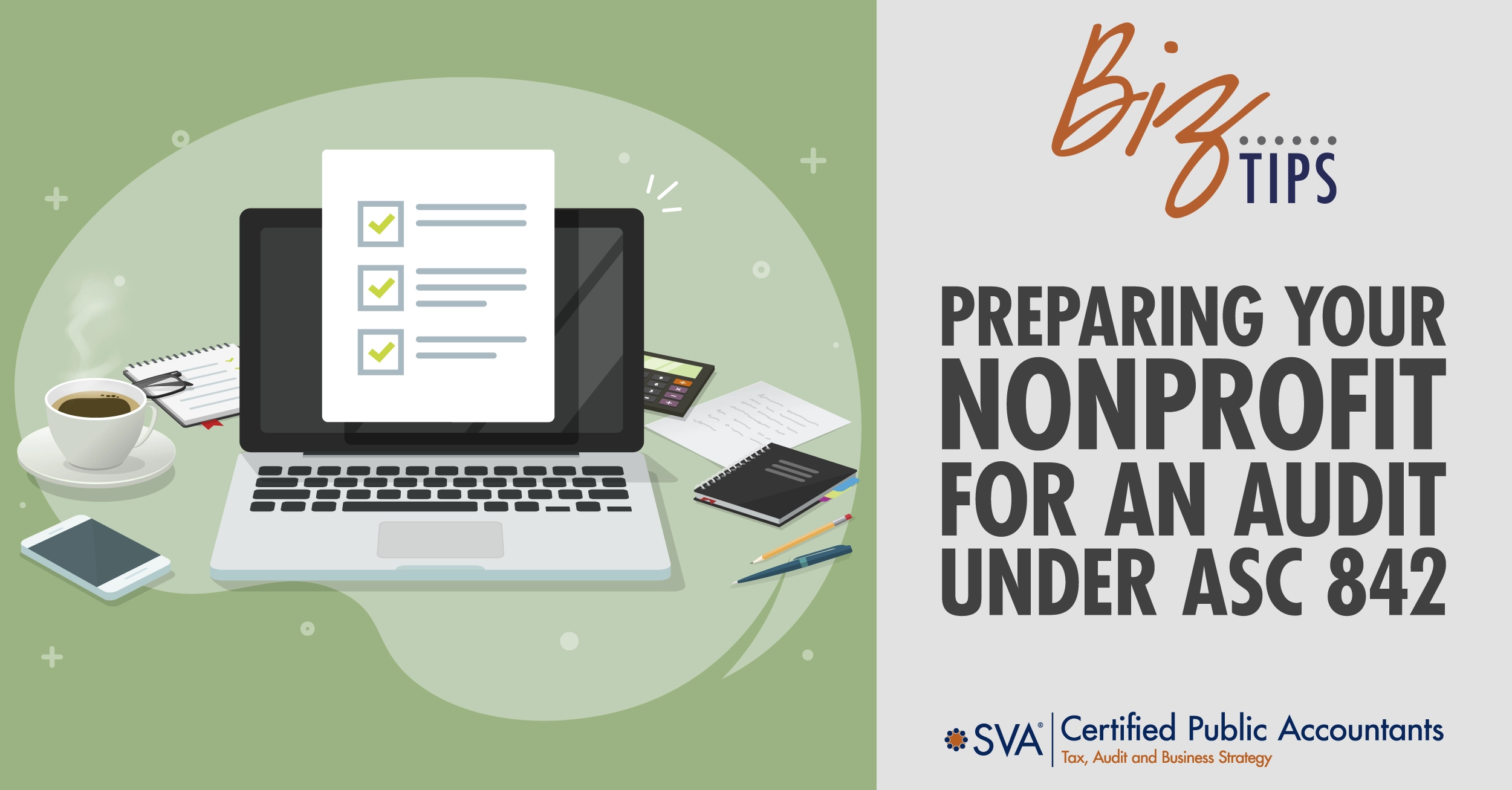A set of accounting standards for leases is now mandatory for most business entities in the U.S., including not-for-profit organizations (NFPs).
These standards, known as ASC 842, began to take effect in late 2018 for publicly-traded companies. They became effective for all entities in the U.S. for fiscal years beginning after December 15, 2021. NFPs that use calendar-year accounting must therefore be in compliance for 2022.
The following offers an overview of ASC 842 and guidance on how NFPs can prepare for audits now that the standard is in place.
What is the ASC 842 Standard?
The Financial Accounting Standards Board (FASB) establishes generally accepted accounting principles (GAAP) for private entities and organizations. These principles are known as the Accounting Standards Codification (ASC) system.
The FASB is not a governmental agency, but the U.S. Securities and Exchange Commission (SEC) has granted the FASB the authority to maintain the country’s GAAP system. The SEC’s approval has led to widespread acceptance of the FASB as the nation’s authoritative voice on accounting standards.
ASC 842 is the section dealing with leases. It originated in the early 2000s and first became effective for publicly-traded companies in 2009. The FASB issued a major update in 2016, followed by additional updates through 2021.
The financial scandals surrounding the collapses of Enron in 2001 and Worldcom in 2002 led to the development of ASC 842. Prior to those events, GAAP only required organizations to include capital leases on their balance sheets. Operating leases were not required to be included.
Capital leases, also known as finance leases, typically involved depreciable assets and ended with the business taking ownership of those assets. Operating leases involved the use of an asset like retail or office space.
Enron took advantage of the loophole created by these two definitions. It used operating leases to hide a tremendous amount of liabilities. This ultimately cost shareholders billions of dollars and led to the loss of thousands of jobs.
ASC 842-20-20 defines a “lease” as “an agreement conveying the right to use property, plant, or equipment (land and/or depreciable assets) usually for a stated period of time.” This definition helps close the loophole that Enron used by eliminating the distinction between capital and operating leases.
Organizations must include all leases that last longer than 12 months on their balance sheets. This includes leases for real property, equipment, vehicles, computers, and telephones. Some leases can be difficult to identify, such as leases that are included as part of a larger service contract.
The new standard may also change how organizations prepare other financial statements. An operating lease is no longer just an ongoing expense, such as an obligation to pay monthly rent for leased office space. The right to use the property is an asset that must go on the balance sheet. The full obligation to pay rent over the term of the lease is a corresponding liability.
(Download Video Transcript)
How Will Auditors Test Compliance with ASC 842?
ASC 842 will require some major changes in how many NFPs handle their bookkeeping and accounting. Auditors will look at an organization’s leasing system to see how well they have adapted to the new standard. They will perform a risk assessment to identify potential areas of noncompliance.
Questions they will ask may include the following:
- Has your organization thoroughly reviewed its contracts to identify all leases?
- Have you made accurate valuations of your leases, and does your balance sheet reflect those valuations?
- Do your financial statements accurately reflect the dates leases begin and end?
- Have you correctly identified finance and operating leases?
How Can Nonprofit Organizations Prepare for Audits?
Preparing for an audit that applies ASC 842 requires familiarity with the new standard. From there, your organization can plan and prepare for the auditor’s likely questions as discussed above. Creating an inventory of all leases is an important early step in the process.
This can be more difficult than it might seem if lease obligations are contained within larger contracts. Determining the present values of your organization’s operating leases is also likely to be a challenge.

© 2023 CPA ContentPlus

